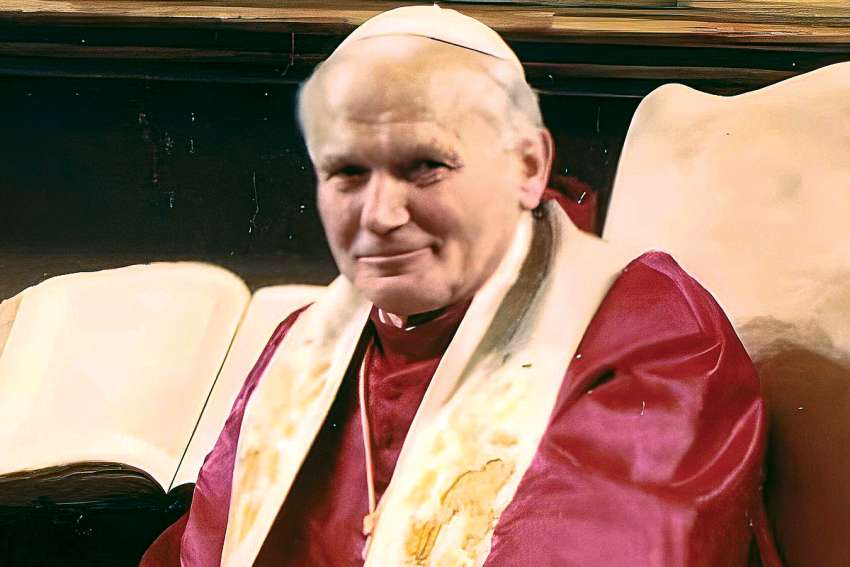Those first followers of Jesus, full of His sacrificial love, set incredible standards by which to measure our success as Christians. Even they did not always meet them! Christians have continued to ponder the infinite power of the Resurrection and its meaning ever since; not only for our individual souls but for our relationships to each other and to the planet.
An incredible resource that captures this reflection is the Compendium of the Social Doctrine of the Church, something I reference from time to time in my columns. Very few Catholics have read it, most do not even know about it.
The Compendium was created at the request of St. John Paul II, announced publicly in 1999 in his apostolic exhortation Ecclesia in America. He said, “special care must be taken to train lay persons capable of working, on the basis of their faith in Christ, to transform earthly realities.”
It took five years to complete the request, a testimony to the amount of work involved in preparing a text that had no precedent in Church history. The Compendium of the Social Doctrine of the Church was published and presented to St. John Paul II by the Pontifical Council for Justice and Peace (now the Dicastery for the Promotion of Integral Human Development) on June 29, 2004.
A compendium is a systematic and concise gathering of information on a particular subject. I like to think of it as a “portal”’ The Compendium of the Social Doctrine of the Church is a portal to the Scripture and Tradition from which Catholic Social Teaching is drawn. The reader will find references in the Compendium to countless passages and documents of this vast tradition. It’s like entering a world!
The first chapter is entitled, “God’s Plan of Love for Humanity,” reminding us why Catholic Social Teaching exists at all. In it we read, “Discovering that they are loved by God, people come to understand their own transcendent dignity, they learn not to be satisfied with only themselves but to encounter their neighbour in a network of relationships that are ever more authentically human. Men and women who are made ‘new’ by the love of God are able to change the rules and the quality of relationships, transforming even social structures… Only love is capable of radically transforming the relationships that people maintain among themselves.”
There is an elegant structure to the Compendium. The first four chapters are dedicated to the principles and teachings of the doctrine itself, including an entire chapter on the principle at the root of all the others: human dignity. The remaining chapters are dedicated to how these principles and teachings come to bear on the many domains of social life: the family, human work, economics, politics, international relations, the environment and promotion of peace.
It does not capture the social teaching expressed through Pope Benedict and Pope Francis. I am currently reading a book by Cardinal Michael Czerny and Christian Barone, Siblings All, Sign of the Times: The Social Teaching of Pope Francis. As I read it, I am becoming convinced that the time has arrived for a second edition of the Compendium that includes their teaching.
On a personal level, I have been deeply touched by the vision of Pope Francis. The Compendium will be enriched not only by his encyclicals, but the very witness of his life. A new edition would be a beautiful project for the Dicastery responsible to begin this Easter season.
There is no better moment to form ourselves in what the truth of the Resurrection requires from us as we make our way in the world. Renewed attention brought by the project would also serve to ensure that more of us are formed to “transform earthly realities.” As Pope Francis would say, the Compendium is only useful in our hands, not gathering dust on a shelf.
(Stocking is Deputy Director of Public Awareness & Engagement, Ontario and Atlantic Regions, for Development and Peace.)


